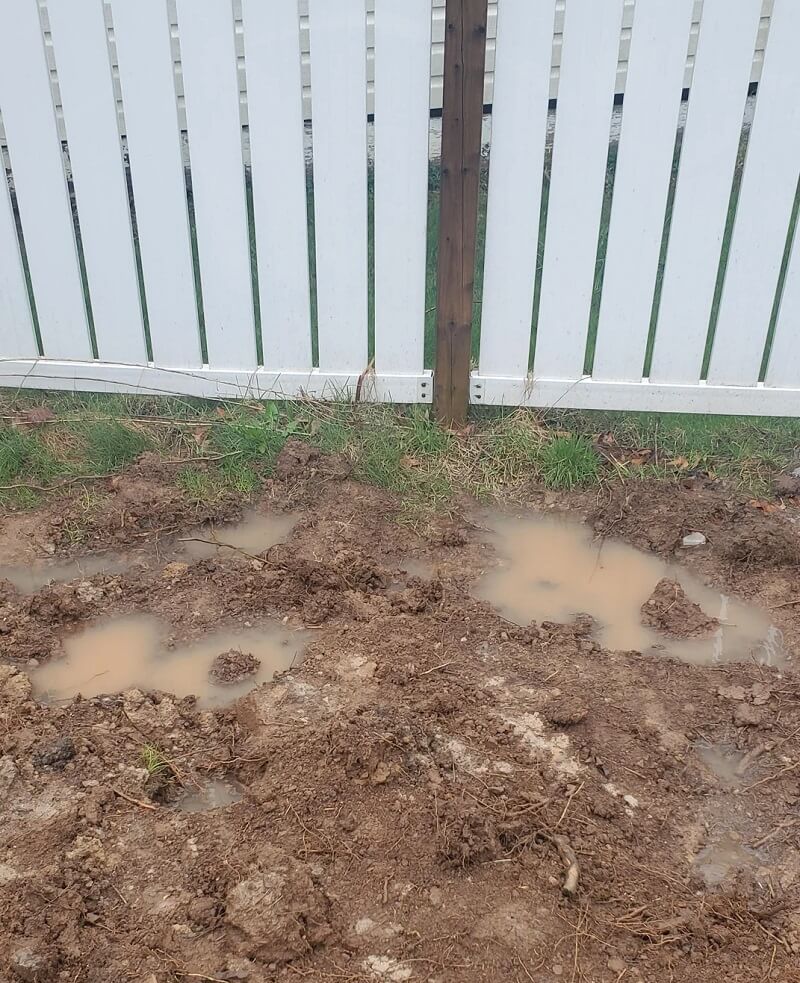Putting a garden in your backyard isn't as straightforward as picking a spot and starting to plant, as one Reddit user discovered.
They shared a photo of their backyard in the r/gardening subreddit, showing a muddy patch of grass by a white fence.

"I suspected this might happen. There used to be bushes here that I pulled. Water would pool up/flood on the other side of my yard, and it seems that the water pools up all against this fence. Is there anything I can do?" they asked.
People came through with some helpful suggestions for their mudbound patch of land.
Several people suggested putting in plants to make a rain garden to trap water runoff.
Preventing runoff provides free water for any plants in your garden, saving money on your water bill. It also prevents erosion and keeps any fertilizers and pollutants from being washed into storm drains and down to water sources. According to CalRecycle, 70% of pollution in surface water comes from stormwater, so filtering any runoff through natural elements like soil can reduce this issue while helping your garden grow.
One person suggested going with native plants that like wet roots, noting it would be easier than engaging in an expensive drainage repair or engineering project.
Native plants are great for any type of garden. They're naturally used to whatever weather and rainfall is typical for the area, again saving water costs and excessive water usage, making them easy to maintain.
The U.S. Forest Service notes that a native garden also does not require fertilizers or pesticides, keeping the environment cleaner, while saving money at the same time. They can also prevent erosion, which can help restore natural groundwater in the long run (and, in this person's case, likely keep their lawn more intact).
Another benefit to native plants is their ability to attract pollinators, like bees, butterflies, and even birds. Pollinators are important because they, as the name implies, help pollinate plants, spreading the necessary components to fertilize them. That especially matters if anyone attempts a vegetable garden, as pollinators are responsible for fertilizing thousands of species of crops worldwide.
"Working with nature, rather than fighting and trying to dominate it, is usually a much easier and satisfying way to go," one commenter wisely pointed out, urging the person to go the rain garden route.
Another highlighted the importance of having some kind of plant life back in the yard, writing, "Regardless of which suggestion you end up going with, having roots in the ground, and subsequently improved soil quality, will help a lot with drainage."
"The more you plant the less standing water you'll have," another person added.
Join our free newsletter for easy tips to save more, waste less, and help yourself while helping the planet.









